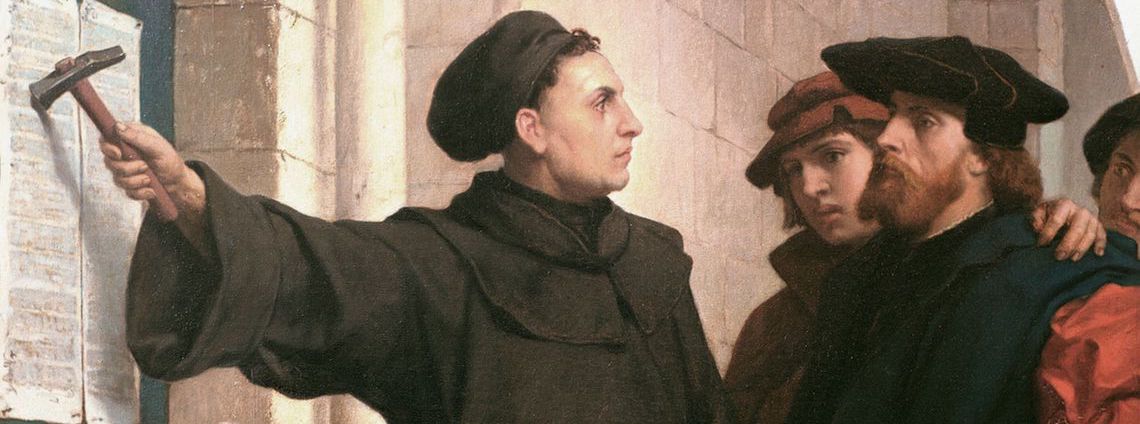Christ Church Cathedral | Map
Ian Bannerman, tenor; Christopher Bagan, organ; Alex Fisher, sackbut; Taka Shimojima, tenor; Jeremy Berkman, sackbut; Lutheran Vespers: Songs for Troubled Times, counter-tenor; Jacob Gramit, baritone; Erik Kallo, tenor/counter-tenor; Madeline Lucy Smith, soprano; Ellen Marple, sackbut; Nathan Wilkes, sackbut
An EMV Emerging Artists Event
Tickets at door – suggested donation $10
Between 1618 and 1648, Europe and Germany in particular were ravaged by the Thirty Years’ War. Following the Peace of Westphalia, the immediate conflicts were stayed, but the feelings of uncertainty remained. In the Lutheran church, the music for the evening Vespers service was a source of great consolation. This programme focuses on some very rarely performed works from Mühlhausen. Music by Samuel Scheidt (1587-1654), Heinrich Schütz (1585-1672), Johann Rudolph Ahle (1625-1673), Hans Leo Hassler (1564-1612), Johann Christoph Bach (1642-1703) and Johann Michael Bach (1648-1694).
This concert will be followed by a free screening of Sacred Music – Bach and the Lutheran Legacy at 4pm. In this hour-long documentary, you will learn how the Protestant Reformation shaped the works of J.S. Bach.
Click here for information about parking around / transiting to Christ Church Cathedral
Programme
Tulerunt Dominum – Samuel Scheidt (1587 – 1654)
“Die mit Tränen säen” – Heinrich Schütz (1585 – 1672)
O lux beata Trinitas – Johann Rudolph Ahle (1625 – 1673)
Magnificat à 7 – Johann Rudolph Ahle
Herr nun lässest du deinen Diener – Heinrich Schütz
Pater Noster – Hans Leo Hassler (1564 – 1612)
Der Gerechte ob er gleich – Johann Christoph Bach (1642-1703)
Ich weiß, daß mein Erlösser lebt – Johann Michael Bach (1648 – 1694)
Da pacem Domine – Johann Hermann Schein (1586 – 1630)
Benedicam Dominum – Andrea Gabrieli (1532-1585)
Programme Notes
Between 1618 and 1648, Europe and Germany in particular were ravaged by the Thirty Years’ War. Following the Peace of Westphalia, the immediate conflicts were stayed, but the feelings of uncertainly remained, as they often do in the aftermath of a political upheaval. In the Lutheran church, the music for the evening Vespers service reflected this, praying for safety as the light of day turned into the uncertainty and potential danger of night. In a concert rather than a liturgical context, today’s program samples music that could have been found in the context of that service.
Samuel Scheidt (1587-1654), while known for his travels to the Netherlands, spent most of his life in Halle, a town about forty-five kilometres northwest of Leipzig. He stayed in Germany throughout the Thirty Years War, holding a variety of small positions and composing mostly organ music and vocal motets. “Tulerunt Dominum” comes from the first (and only) volume of his Concertuum Sacorum, published in 1622, while he was working at the court in Halle. While he had intended to publish more volumes of this collection, he got sidetracked by organ music, and in 1625, he lost his salary and most of his musicians due to the court’s involvement in the war. While the collection only holds 12 pieces, two are settings of this text – Scheidt was clearly drawn to the contrast between the sorrow and anxiety in the first half of the text, and the jubilance and relief of the second. The piece is scored for two choirs of predominantly low voices, but still finds ways to enliven the text, such as the duet of upper voices for “the angels say” and the use of upward scale motions for “surrexit.”
In between the music in the old style of Schütz, we’ve placed two pieces (one in the new, concerted style, and one in the stile antico) by Johann Rudolph Ahle (1625-1673). Ahle spent most of his life in Mühlhausen, and from 1654 he worked as Organist at the Divi-Blasii-Kirche, where he remained until his death. He published four collections of sacred concertos (Neugepflanzter thüringischer Lustgarten) between 1657 and 1665, and these two pieces are drawn from the second collection, issued in 1658.
“O Lux Beata Trintas” (of which this is almost certainly the North American premiere) sets the three verses of the Latin hymn in a six voice motet based on a melody published in a variety of sources in the mid to late 16th century. Interestingly, the melody commonly appears with the Luther translation of the text (“Der du bist drei in einigkeit”), yet only in a 1553 hymnal published by Lukas Lossius does it appear with the Latin text which Ahle sets. Ahle’s 1658 collection also contains four settings of the Magnificat, two each in German and Latin. This is the smallest scale piece of the four, scored for three singers and four trombones. Ahle pays special attention to the text in each verse, from the jubilant rhythms of “et exultavit” and the playful melismas on “dispersit,” to the mournful suspensions on “esurientes.” The function of the trombones in the piece is twofold – they serve as a “choir” to highlight the ends of verses, but Ahle also displays his mastery of counterpoint with periodic trombone sinfonias.
While at Mühlhausen, Ahle performed older music as well as his own compositions; the church library contained copies of the Florilegium Portense – a collection published first in 1618 in Leipzig. Containing a variety of motets in the old style, the contents included pieces by composers from throughout Europe. The “Pater Noster” of Hans Leo Hassler (1564-1612) is the first piece in the collection, and while Luther called for the Lord’s Prayer in Vespers to be silent, today we’ll sing this splendid double choir motet. The other piece from the Florilegium comes at the close of the program – Luther indicated the service was to close with a Benedicam. This motet comes from the Venetian master Andrea Gabrieli (1532-1585) – giving an idea of the breadth of the collection both in terms of time and style. It’s worth noting that Johann Sebastian Bach would eventually order copies of the collection for the Thomaskirche in Leipzig, meaning it was still being used on a regular basis well into the eighteenth century.
Brothers Johann Christoph Bach (1642-1703) and Johann Michael Bach (1648 – 1694) were both sons of Heinrich Bach, making them both Johann Sebastian’s first cousins, once removed. They both held positions at churches in Thüringia – Johann Christoph in Eisenach and Johann Michael in Gehren. Musically, they both belonged to the generation before Johann Sebastian, as both of these works show – largely homophonic, old style motets. Johann Christoph’s “Der Gerechte ob er gleich” is notable for its subtle harmonic shifts, particularly in the opening lines, as the music depicts the righteous finding rest. In “Ich weiß, daß mein Erlöser lebt,” Johann Michael sets a beautifully simple chorale melody by Melchior Vulpius (“Christus der ist mein Leben”) above a gently moving homophonic men’s chorus. Both motets survive only in copies from after their composers’ deaths; “Der Gerechte” in particular was copied by Heinrich, then by Johann Sebastian, and later orchestrated by Carl Phillip Emmanuel Bach.
One hundred years before Johann Sebastian was appointed Thomaskantor, the position in Leipzig was held by Johann Hermann Schein (1586-1630). “Da Pacem Domine” didn’t appear in one of his collections, but was a separately published piece from 1630, in the midst of the war. The text of the double choir motet prays for God to grant us peace, and the music seems to portray uncertainty and darkness at times, especially in the opening passages where each choir sings on its own. Later in the peace, we hear quick, imitating entrances, which seem to imitate the fighting surrounding Germany at the time. The title page of the publication begins “Precatio Ecclesiae Pro Pace/A Prayer of the Church for Peace,” and the set of parts includes a poem of Schein, which claims that we can witness war as the cause of sadness all around, so we must “sing in concert, and of peace.”
Jacob Gramit, March, 2017
Texts and Translations
Click here to view or download the texts and translations for this concert

Ian Bannerman, tenor
Ian Bannerman attended The University of British Columbia, studying voice performance under Roelof Oostwoud and J. Patrick Raftery. Ian’s interest in choral music sparked at a young age encouraged by his mother, an elementary school music teacher. His choral experiences in his home town of London, Ontario include serving as Assistant Artistic Director for Conspirato Chamber Singers, headlining for the Daejon Choral Festival in South Korea with Six Vocal Ensemble and Vocado, and nearly a decade singing with the Amabile Boys and Men’s Choirs.
At UBC, Ian performed with the University Singers, UBC Chamber Choir, and UBC Men’s Choir. While living in Vancouver for the past four years, Ian has worked with various ensembles including musica intima, Phoenix Chamber Choir and the Vancouver Cantata Singers. Ian is very excited for his first season with the Vancouver Chamber Choir!
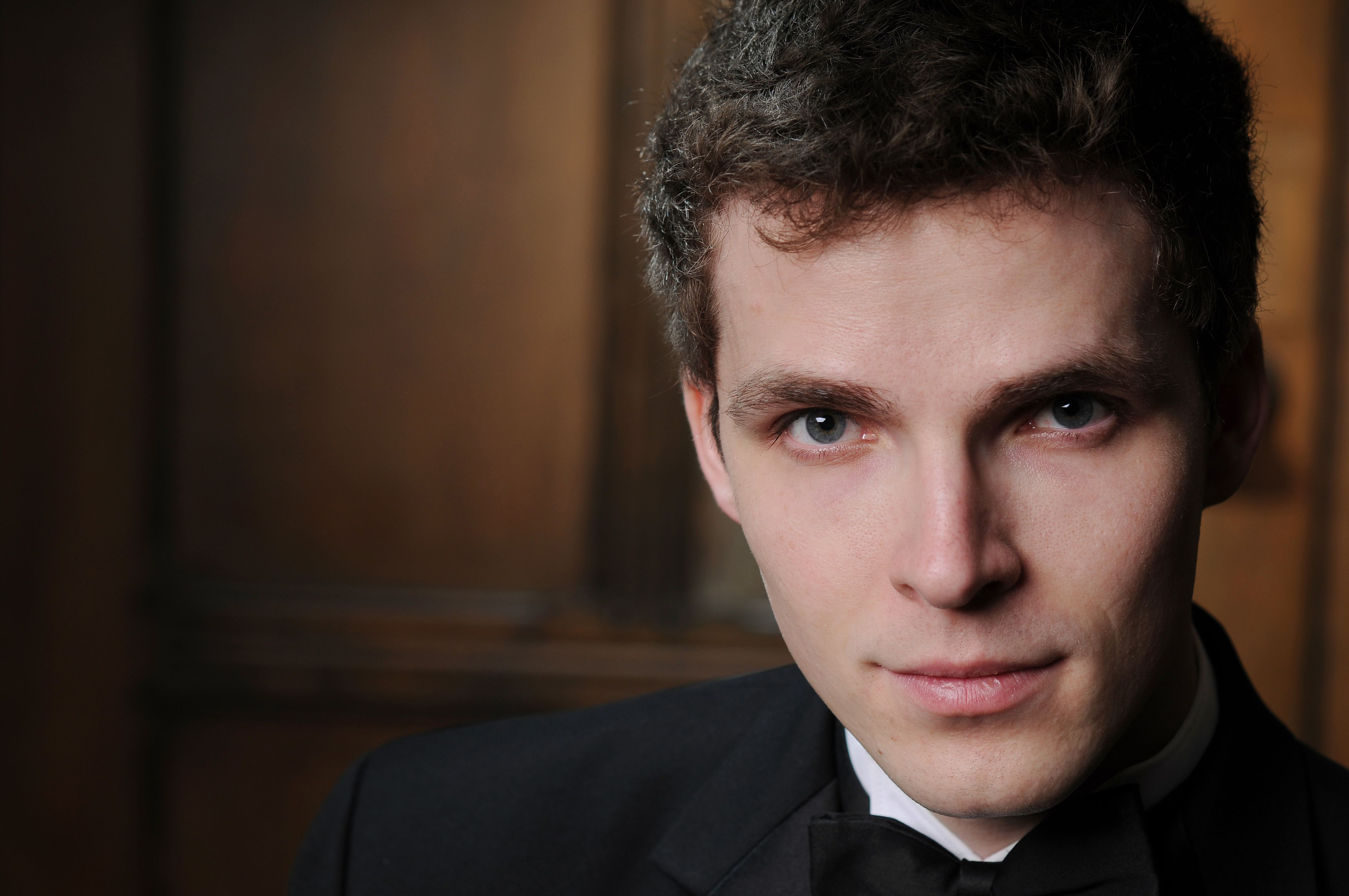
Christopher Bagan, organ
Christopher Bagan is a versatile artist, equally at home on modern and historical keyboard instruments. He is in high demand as a collaborator, chamber musician and basso-continuo specialist. He has performed with many of the leading baroque singers, instrumentalists and conductors in North America and abroad. Christopher is particularly active in the field of baroque opera, working as the assistant conductor at Opera Atelier and as coach and repetiteur at the Canadian Opera Company. In 2015-16 Christopher was the Early Keyboard instructor at Case Western Reserve University and the head of Harpsichord at the Cleveland Institute of Music. He is currently on Faculty at the University of Toronto, working with the students in the historical performance program. He is also on faculty as a historical keyboard coach in the Canadian Opera Company's elite Ensemble training program.
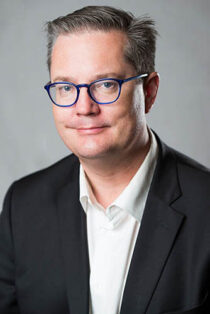
Alex Fisher, sackbut
Alex Fisher is a co-founder of Cappella Borealis and Professor of Music at the University of British Columbia since 2002. A native of Massachusetts, he studied trombone at Northwestern University (B.Mus., 1992) and received degrees in musicology from Indiana University (M.A., 1995) and Harvard University (Ph.D., 2001). A musicologist specializing in the music and soundscapes of Germany in the Renaissance and Baroque eras, he is the author Music and Religious Identity in Counter-Reformation Augsburg (Ashgate, 2004) and Music, Piety, and Propaganda: The Soundscapes of Counter-Reformation Bavaria (Oxford, 2014), as well as of a range of articles and editions on music and religion in the post-Reformation era. He began studying sackbut and early winds at Northwestern University and has performed with the Indiana University Early Music Institute, musica intima, La Modestine, and in various productions of Early Music Vancouver.
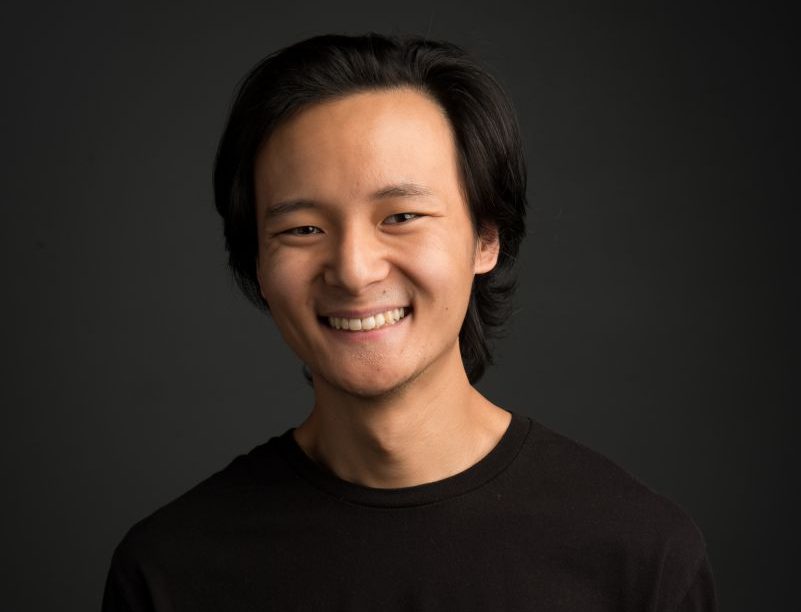
Taka Shimojima, tenor
Taka Shimojima was born in Vancouver, B.C and is currently studying music education at the UBC School of Music. While majoring in secondary education with a focus on bassoon during university, Taka has extensively sung around the city with various groups. He is now singing with musica intima vocal ensemble, Phoenix Chamber Choir, West Vancouver United Church, and works part-time at a sushi restaurant. Taka also enjoys a cappella singing and arranging music on the side. Besides music, Taka enjoys science, physics, and education.
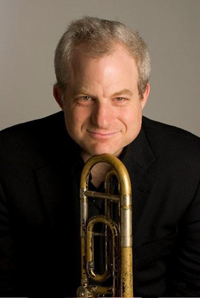
Jeremy Berkman, sackbut
Tenor Sackbut player Jeremy Berkman was first inspired to learn the trombone through listening to recordings of Gabrielli Canzoni every holiday season growing up. Despite also spending time when young learning to play alto recorder, it is more modern music that overtook his education and led him to complete degrees in music at Oberlin Conservatory and the Juilliard School. He currently holds leading positions with Vancouver Opera’s Orchestra, A Touch of Brass Quintet, the Jill Townsend Big Band, cellist Peggy Lee’s sexet (The Peggy Lee Band) and Turning Point Ensemble, where he also serves as Director of Education and Community Engagement. Honoured with Vancouver’s Mayor’s Award for music in 2011, Jeremy has found in Vancouver a community of entrepreneurial, creative, and talented colleagues with whom he has joined to participate and in some cases produce numerous incredibly inspiring musical and interdisciplinary efforts. He is very thrilled to be invited by Jacob Gramit to participate in this Lutheran Vespers for Troubled Times production, and find in its music-making the circles of life and truth.
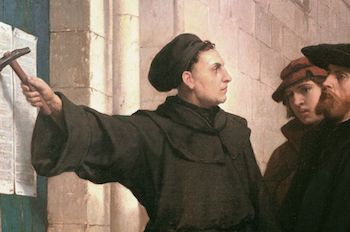
Lutheran Vespers: Songs for Troubled Times, counter-tenor

Jacob Gramit, baritone
Originally from Edmonton, baritone Jacob Gramit is currently living in the Netherlands, pursuing a Master’s Degree in Early Music from the Royal Conservatory in the Hague, studying with Pascal Bertin, Peter Kooij, Michael Chance, Dorothee Mields, Robin Blaze, and Lenie van der Heuvel. Highlights have included projects ranging from Franco-Flemish Polyphony from original notation under Stratton Bull, to a tour of Bach’s B Minor Mass (with performances in America and the Netherlands) under Ton Koopman, to singing Louis Andriessen’s De Materie under Reinbert de Leeuw, as well as projects with Charles Toet, Pieter Jan Belder, Mike Fentross and Peter van Heyghen. Before moving abroad, Jacob lived in Vancouver, where he attended the University of British Columbia (BMus, 2012), and sang for three seasons with musica intima, as well as singing as a section leader in the Vancouver Cantata Singers and the Christ Church Cathedral Choir. As a chorister, he has performed with the Pacific Baroque Orchestra under Alexander Weimann on several occasions, and was selected to participate in a performance of Spem in Alium and other renaissance masterworks with the Tallis Scholars (under Peter Philips), presented by Carnegie Hall.

Erik Kallo, tenor/counter-tenor
Erik Kallo received his Bachelors of Voice Performance at the University of British Columbia under the guidance of Dale Throness. He's had extensive work in the choral and soloistic fields as both a Tenor and a Countertenor being apart of the UBC University Singers, UBC Chamber Choir, and UBC Mens Choir as well as doing a UBC Opera's production of George Bizet's Carmen singing in the chorus. Currently, Erik sings for West Vancouver United Church as a paid soloist under the direction of Gerald Van Wyck and musica intima; a Juno award-nominated self directed vocal chamber ensemble that recently was the first ever North American vocal ensemble to be invited and performed at the 2016 Busan International Choral Festival in South Korea. Born in Hungary but raised in Canada, Erik attended the Langley Fine Arts School in Fort Langley B.C. where he sang and played saxophone in over six ensembles from Grade 1-12. Erik's love for music knows no bounds. Apart from singing primarily Classical, Erik also adores singing Jazz/Pop and has had the pleasure of fronting Dal Richards Orchestra on many occasions at the UBC Opera Ball. In the Fall, Erik will continue his studies abroad in London, England where he will be pursuing a Masters at the Royal College of Music as a Countertenor.

Madeline Lucy Smith, soprano
A graduate with honours from the UBC Opera Program, Madeline Lucy Smith has recently arrived home in Vancouver after three years in the Netherlands, where she studied privately with the world’s foremost experts in historical performance practice, and performed around Holland, Belgium and Italy. Highlights included singing in two projects at the Utrecht Early Music Fringe Festival in 2017.
No stranger to world stages, Lucy studied the art of stage craft performing operas on the stage of the Chan Centre and in historic houses in the Czech Republic throughout her schooling. She made her professional debut at the Melbourne Recital Hall in 2009 singing First Witch in Dido and Aeneas with the Royal Melbourne Philharmonic and subsequently premiered, toured and filmed the premiere of Australian composer Nicolas Buc’s Mary MacKillop Mass.
In Vancouver, Lucy is in demand both as a soloist and an ensemble singer. This autumn will mark her 6th full season with the Vancouver Chamber Choir where she is often featured as a soloist, most notably on the JUNO nominated CD “A Quiet Place” (2014) and on the CBC broadcast performance of Bach’s Magnificat (2013).
Lucy is a soloist and section leader at Christ Church Cathedral, and also sings regularly with musica intima, as well as for Early Music Vancouver, both as part of Vancouver Bach Festival projects, and in larger scale choral works with the Pacific Baroque Orchestra, under Alexander Weimann.
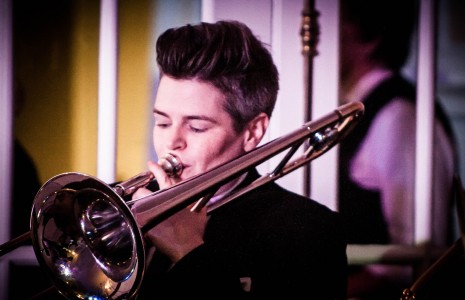
Ellen Marple, sackbut
Ellen Marple is active in the Vancouver, British Columbia music scene both as a freelance low brass musician and an educator. In May of 2010 she completed a Masterʼs Degree in Trombone from the University of British Columbia which had a split focus on contemporary trombone music, under the direction of Jeremy Berkman and early music under the direction of Ray Nurse. Performing regularly in a wide variety of musical styles, Ellenʼs freelance career includes early music, chamber, orchestral, latin, jazz, reggae, hip hop and indie rock. Placing importance on fundamental brass skills, she encourages her students to work across genres and explore different musical styles. Performances and recordings of note are with: the Vancouver Symphony Orchestra, the Salsa Dura Ensemble led by Sal Ferreras, the Fred Stride Jazz Orchestra, Dan Mangan, The Salteens, Parlour Steps, C.R. Avery, Pendomoja, Vancouver Island Symphony, University of North Texas Wind Ensemble and the 2008 Festival of Ideas period performance of Monteverdiʼs Orfeo, directed by Ellen Hargis.

Nathan Wilkes, sackbut
Nathan Wilkes studied bass trombone at Oberlin Conservatory with Per Brevig and Ray Premru, and completed doctoral studies at UBC, where he studied with Doug Sparkes. He has also studied early music performance (sackbut) with Bruce Dickey. He enjoys playing medieval, renaissance, and baroque wind instruments, and is a member of Chanterie Medieval Vocal Ensemble.

